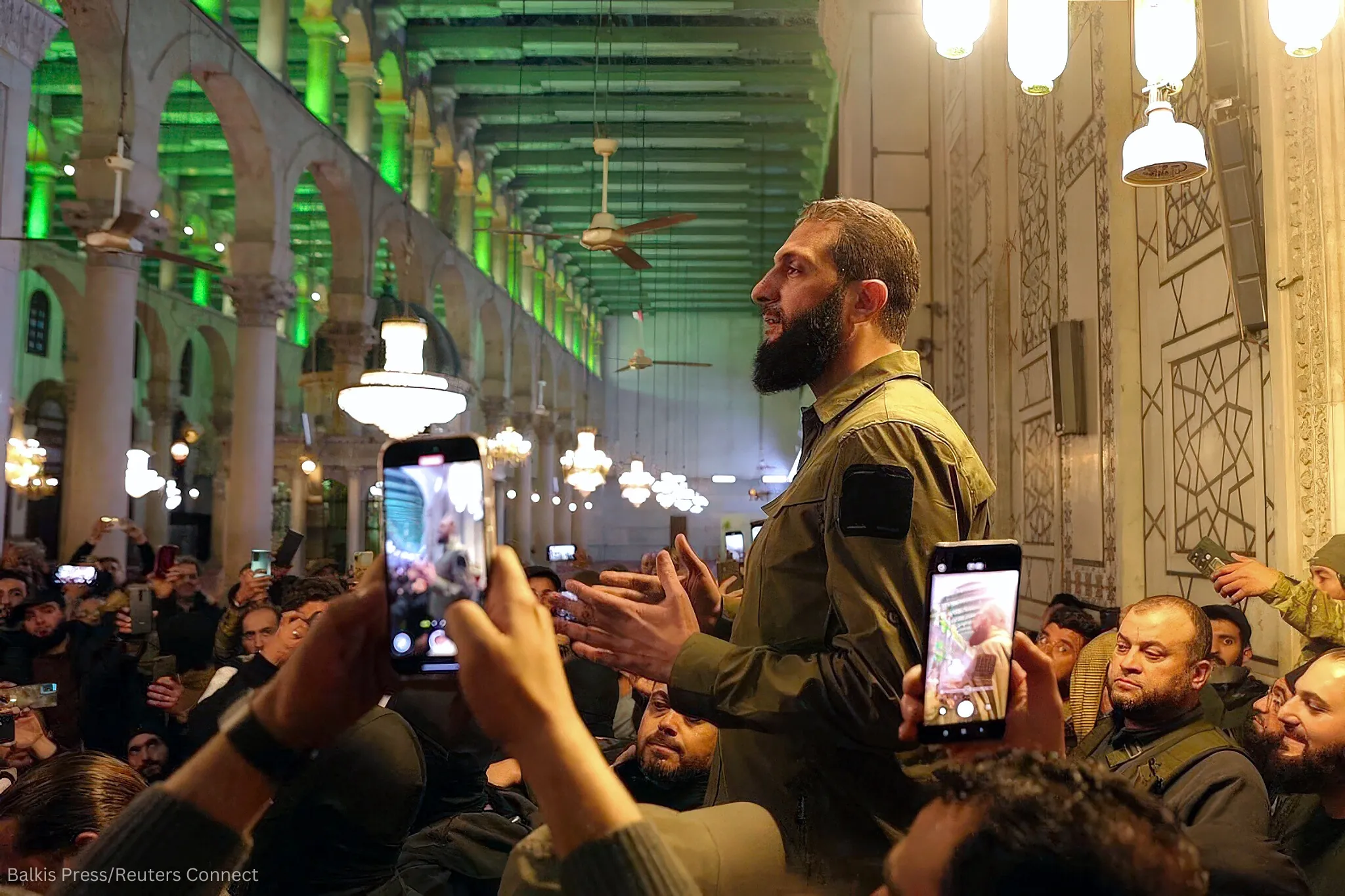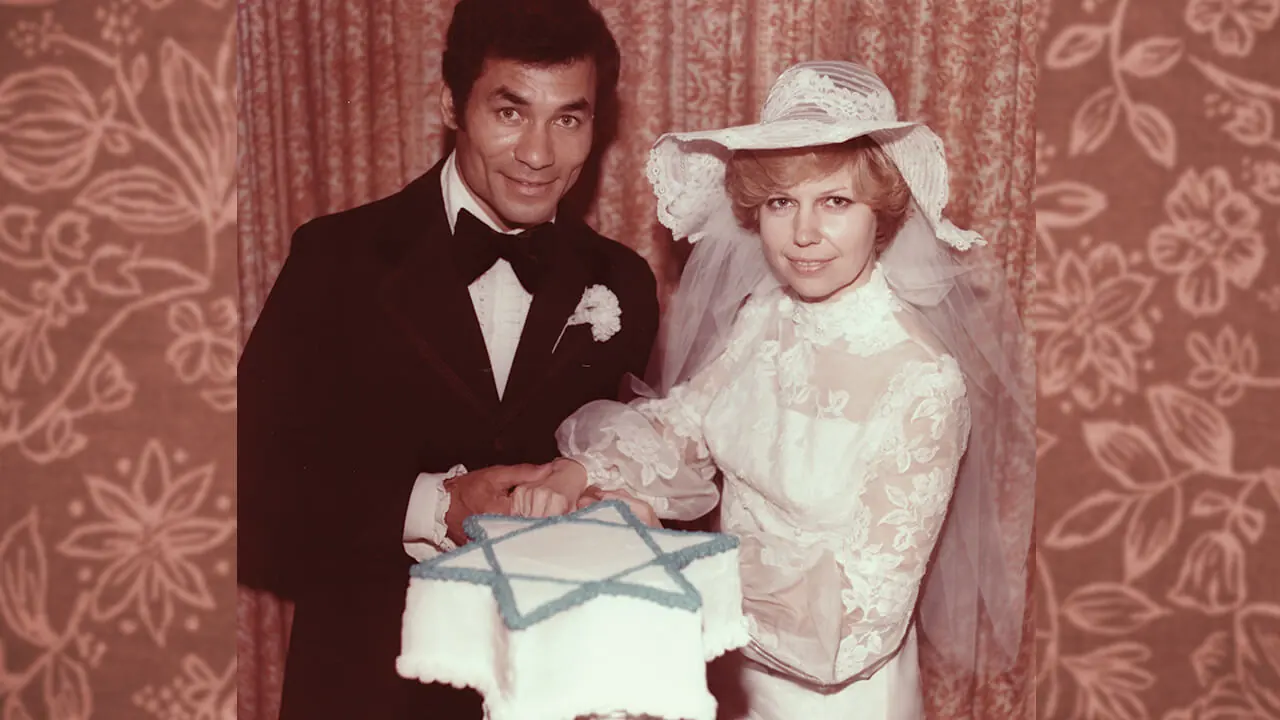
I was 19 years old when I first came face to face with the massive stones of the Wailing Wall. It was 1959 when East Jerusalem was still in the hands of the Jordanians. I had come on a tour with my parents and several other well-known ministers. One of these ministers who was known for his boldness turned to the wall and began to pray. “No, no, no!” the local guide whispered in panic. They’ll arrest us if you pray.”
The Jordanians had captured the whole of Judea and Samaria during the power vacuum that occurred when the British left the area and Israel proclaimed her independence. From 1948-1967 religious freedom existed for Muslims only. No Jews were allowed in the Old City of Jerusalem—and no prayer to the God of Israel was allowed at the Wailing Wall.
It’s funny the things you remember. I remember it was snowing and I was wearing sandals. I remember how narrow the alley seemed where we stood in front of the wall because ramshackle houses had been built within a few yards of the wall itself. I remember the alleys and the dark dingy pathways. Ancient buses chugged down the main road and donkeys trudged alongside them.
In 1967 we planned a tour to return to Jerusalem but suddenly heard that Egypt, Jordan, and Syria had attacked Israel. We sat glued to the radio listening for brief hourly updates on the situation. By the third day we began hearing incredible things. Israel had captured the Old City with the Wailing Wall! By days five and six they had pushed Syria beyond the Golan Heights. In six days the war was over.
I would venture to say no Israeli woke up that Monday, thinking that by Saturday they would be able to pray at the outer western wall of their ancient Temple. No one, perhaps, except a woman named Naomi Shemer, who, a month before Jerusalem was liberated, released what would become an iconic song called, “Jerusalem of Gold” in which she spoke of traveling to the Dead Sea by way of East Jerusalem and passing through Jericho. It would not be the only time she would write a prescient song.
In October of that year, our tour arrived in Israel. And just like the song prophesied, our bus traveled on the newly accessible road from Jerusalem to Jericho by the Dead Sea. Our Israeli guide had been a tank driver and had taken part in the Golan victory. He took us to spots on the Heights where his unit had clashed with the Syrians. He showed us one of the burnt-out tanks that had reached the border of Galilee ready to destroy Israeli villages. You could tell it was fresh in his mind as he described the movements of his tanks manuevering against the enemy tanks. He told us how, at some point, the Syrians were so badly beaten they jumped out of their tanks and started running back towards Syria.

My visit to the Wailing Wall, which quickly became known as the Western Wall after Jerusalem had been reunited, was an entirely different experience from my first visit. Israel had removed the shacks that had clogged the grand space and created a large plaza in front of the wall. This area that had been visually dark and dingy for centuries was flooded with light. Even non-religious Jews told of feeling their destiny in the air as they cleared out the rubble. The country was euphoric. They talked about “The Days of Messiah” are here. They also were extremely proud of the incredible feat of the Israel Defense Forces. Bumper stickers were everywhere saying, “Honor to the IDF.”
The tour was over and our group waited outside the hotel with our bags for the bus. It was delayed for some reason, and as I sat and chatted with my dad he asked me, “Why don’t you make a documentary film on the prophecies that have come to pass with Israel recapturing the Old City of Jerusalem and the Temple site after almost 2,000 years?”
My father loved Israel, and I had just finished a documentary film in Mexico. So I suppose it was natural to think about such a project. A woman I respected had told me years before that I was “called” to Israel, but at the time Israel was a third world country and I had no interest in living there. Nevertheless, there was something special about the culture—where kids ages 18-21 had just fought a war for their very survival. They had a seriousness about them you didn’t see in western countries. By the time the bus arrived, I had decided to stay a few more weeks and film the documentary.

(Credit: Wikipedia)
I should’ve known nothing in Israel happens in a few weeks. It took me a year to work on the script. There were so many prophecies and so much happening all around me in those months after Jerusalem’s liberation. Thankfully, my father was a visionary. The year before he had purchased some property in then-Jordan on the Mount of Olives. He knew scripturally that if Yeshua was coming back to the Mount of Olives, it would eventually be returned to the Jews.
He understood something that I never heard anyone else talk about at that time. Jews were destined to receive Yeshua as their own—as a Jewish Messiah for the Jewish people. The property, he dreamed, would serve as a training center for Jews to reach their own people. That property was where I lived my first year in Israel.
It was an old house, and when it rained the howling wind would slam the metal shutters open in the middle of the night beside my bed. But it was so surreal to look out that window in the morning and see the Temple Mount just a few hundred meters below me.

(Dan Hadani – The National Library of Israel)
The Mount of Olives was quiet and safe for everyone in 1967. The Arabs were still in shock over their new country. I got acquainted with a number of the Arab neighbors on the Mount of Olives. But I soon found they were quite jealous of my company. If I visited one family, I had to visit other families as well or they would get upset with me. The Arabs from the area had lived under British rule 31 years and then under Jordan for 19 years. First, they were Arabs under the British mandate, and then they were Jordanian Arabs. Now they had become residents of the Jewish state of which they had been told was their fiercest enemy. They drove their cars very politely under their new administrators in those days.
I had studied Spanish and French in college and while living in Europe. So, with my love for languages, I decided to take a few months of Hebrew just for fun while I worked on the script for my documentary. With immigrants coming in droves, there were Hebrew language schools everywhere called ulpans. In this new reality, many local Arabs decided to learn Hebrew as well—especially shop keepers or officials of the Arab people who wanted to learn Hebrew for their businesses or careers. In the ulpan, from day one, the teachers only spoke Hebrew to the students. The classroom was always full of people who had come from all over the world. Thus, there was no common language in which to teach. So Hebrew was it.
My first teacher, Yonah, had been born in Israel—her husband was one of the very few Polish Jews who escaped the Holocaust by hiding out in Poland’s forests for several years. They both had fought in Israel’s Independence War of 1948 when five Arab nations invaded the newly born nation. She had many stories of how God had saved her and her unit—miraculously—from Israel’s enemies. She became a friend, and thus introduced me to the people of Israel.

(Keystone Press / Alamy Stock Photo)
I spent some months learning about the nation and its culture. As the Mount of Olives was predominantly an Arab community and I spent most of my time with Israelis, I soon moved to the western side of Jerusalem. The Holocaust was still very fresh to Israelis. Many of the shop keepers had an identification number tattooed on their arms by the Nazis. They didn’t want to speak German again in their lives, even though for many it was their mother tongue. They would never buy German products or cars. They were still living the nightmares of the concentration camps.
With a united Jerusalem, the Old City sprang to life. Israelis flooded the alleys and tiny passage ways, buying everything they could get their hands on. In the marketplace, local Arabs sold Oriental decorative pieces from Damascus, rugs from Pakistan—and other things Israelis had had no chance of purchasing before.

(Government Press Office – Israel)
Independence Like No Other
While May 14th is the internationally recognized day of independence for Israel, Israelis celebrate their Independence Day on the Jewish calendar. So, in 1968 Independence Day fell on May 17th. This was the first Independence Day celebration since the liberation of Jerusalem. The country was electrified. As I walked from my home to the Old City, I saw some half million Israelis spontaneously erupt singing Jerusalem of Gold—the song that had been written just one year earlier. The joy was something indescribable. Israelis—both Orthodox and secular—talked earnestly about the days of Messiah being near.
On the evening before, I walked down Ben Yehuda street and saw crowds dancing the hora—blocks and blocks of dancing. On the balconies above the streets every few yards was a group of musicians with an accordion and some guitars playing Israeli music. They were songs of the love of the land—the Sea of Galilee, the hills and the mountains. Fields of wheat and grapes. Apple blossoms. And songs about the God who chose Israel as His own. There were also songs of the brave soldiers who fought for their country, but never came home. The joy of the Israeli people that first Independence Day was beyond anything I have ever seen before or after.

Dry Bones
After months of trying to come up with a script on my own I realized the scriptures had a ready-made story line. Whenever I came to a verse that spoke of the return of the Jews to their homeland, their return to God, and God’s love for his people, I recorded each one on a five by seven-inch card. By the end I had a stack of cards almost a foot high. Though it took me nearly a year to copy and arrange, those Scriptures were carved on my heart, and are part of my spiritual DNA that has guided me these 50+ years. It gave me a foundation for understanding, at least in part, prophetic developments, both in Israel and the Western nations.

It was 1969 before I was ready to begin filming and God gifted me with three top Israeli artists—Adam Greenberg (later nominated for an Oscar for best cinematography for Terminator 2); Yossi Yadin, a famous Israeli actor; and world-renowned conductor, Noam Sheriff, who wrote the music for the film. The film called Dry Bones told how the Jewish people would return to their land, and they would recognize the Messiah. Yossi Yadin told Prime Minister Golda Meir about the film, and she requested to see it. At the end of the film she sat pondering and then asked me, “Which verses in this film were from the Tanach (Old Testament) and which ones were from the New Testament?” “They were all from the Tanach,” I responded. I spent more than two hours visiting with her, showing her the film and explaining Isaiah 53 to her.

Around that time I met Eliezer Ben Yehuda’s son, Ehud, who was then in his 70’s. Since I was still fairly new to Israel, I did not realize what a colossal pioneer his father was as the central figure in resurrecting the Hebrew language that had been nearly extinct for 2,000 years. A founding father of the modern state of Israel—although he didn’t live long enough to see his dream come true. We talked to Ehud about translating a new Hebrew version of the Greek New Testament. He actually worked on it for a few months, but then stopped. It was too much for him to consider becoming known as the author of that Book.

Then They Found Out About Me
One day I received a phone call from a friend of mine, who lived in the house on the Mount of Olives. She had just met Sarah, a young lady from England. Sarah was from a Jewish family and had recently become a follower of Yeshua. She explained that God had told her to immigrate to Israel. There were very few Messianic Jewish believers in Israel, so I offered her a place in my apartment as I had an extra bedroom. We were roommates for a year and a half.
I had to go to the States for a few weeks to speak to Evangelical groups about Israel. While I was gone, a group of young Messianic Jewish believers visited Israel on a tour. Sarah met one of the guys and they fell in love. They decided to get married, and left for the States. We remain friends to this day.
Sarah had some relatives in Jerusalem who were ultra-Orthodox Jews. When they heard about the marriage, they were furious. They knew I was a believer and blamed me for the match. A few days after returning to Israel, I found all sorts of grandiose stories about me in the newspaper. I was a missionary who went to the Western Wall passing out tracts. I was going to the Hebrew University trying to make Jewish students into Christians. In reality, I had not visited the Western Wall or the University in ages. But the stories were out there.

Not long after, I heard a huge explosion just outside the door of my third floor apartment. Someone had placed a lit Molotov cocktail at my door. The stairs were the only way to get out of the building and all three floors of the stairwell were engulfed in fire. I thought I would be burned alive and rushed to the phone and called the police. Within about three minutes a fire truck arrived and put out the fire. Just then a journalist was passing by in his car and stopped to see what was happening. I told him I thought the person who did this did it because of my faith. I then talked to him for a long time about my faith. The next day there was a prominent article on the back page of Israel’s Yediot Aharonotnewspaper. The headline read, “Shira says God talks to her.”
In the months following, I had a constant stream of visitors, wanting to know more about my faith. Rabbis came to the door and tried to get me to recant. A high-up officer in the army asked me to explain my faith. At the end he said, “I checked your phone before I came. I believe it is tapped.” Actors, writers, Orthodox students from the University came, all asking about my faith. All the neighbors in my building wanted to talk to me about what I believed, though one of them asked that I make sure and not park near his car in case my car was firebombed.
News anchors wanted me on the radio and TV. I felt very alone and didn’t want to appear by myself so I looked around for any other believers to join me. The local believers were too frightened and rightly so. One leader’s car was set afire. But I did find two Jewish believers from the States who joined me for the TV interview. Religious Jews pray from prayer books, so at one point, the journalist said, “Why don’t you show us how you pray?” So, I prayed for Prime Minister Golda Meir on TV.
But life as a single girl having people constantly at the door was very frightening to me. As it happened, in March 1973, I felt the sudden need to go back to Dallas and be with my family and finish a film I had been working on for Youth with a Mission. I was told that there was only one ticket for that week left—Wednesday, March 28. I was so high profile at the time, I thought it best to sort of leave quietly. But when I got to the airport, there was a journalist waiting there. I begged her not to tell anyone I was leaving.

I arrived in Dallas on Thursday night. Sunday morning my mother got up to speak at a service. As she called for a Jewish student to come give his testimony, she heard a noise behind her. My dad was sitting in a chair on the stage. He exhaled deeply and died.
Everyone was in shock. While I was still in mourning, someone sent me an article from an Israeli paper saying I would be expelled from the country. Clearly, the journalist hadn’t kept quiet. I read the article to the staff and students at my parent’s Bible school and one of the prayer warriors led in a strong prayer about the situation. I never heard another word about it from Israel.
On October 6, 1973, Syria, Jordan and Egypt invaded Israel in a terrible surprise attack. That war marked the end of Israel’s six years of euphoria since the liberation of Jerusalem. While the Six Day War was a tale of miracles and awe, the toll of the Yom Kippur War would leave 2,412 Israelis dead and scars that are felt in Israel to this day. Israel eventually won the war—named so because Egypt and Syria attacked simultaneously on Israel’s holy day of fasting and prayer. But all Israelis could see at the end was the destruction, and the list of the dead. Never again would I witness that childlike innocent post-1967 culture where everyone reverently whispered of the coming of Messiah; the jubilant dancing and singing in the streets would be gone for good.

A Fledgling Body in Israel
Soon after I settled in Jerusalem, I had met a pioneering Jewish pastor named Victor Smadja. He began a congregation in Jerusalem. There were other small groups in the country, but its size and location made it the main group in Jerusalem. There were a few other very small meetings with both Jewish and Arab believers in Jerusalem. They agreed to join with Victor—which was a very good move. This group became the first real Messianic congregation in Jerusalem—and they are a dynamic, growing congregation today. There were also small groups in the Tel Aviv area and up north in Haifa. But of course, with technology being what it was at the time, there wasn’t much communication between everyone.
One day lying in my bed in Jerusalem, I suddenly had an overwhelming impression that I should move to Tel Aviv. I sat on the idea for a few days, but it wouldn’t go away. I found an apartment in a small town called Ramat Hasharon, known for its vast fields of strawberries. It was just north of Tel Aviv so I got to know the local believers in the area.
Joe Shulam was one of those believers and through him, I met an Arab college student from Lod who had a bunch of Israeli soldiers as his buddies. They had shown interest in Yeshua and Joe was teaching them in his class. Joe had to make a trip to the U.S. and asked me to take over his Bible class. I had to teach them in Hebrew. Still at this time, my Hebrew wasn’t that great for fast-talking soldiers. I just taught them the Bible in a simple way to guys that didn’t know a thing about Yeshua. Soon, one after another, they accepted Yeshua. I was shocked. Later, we joked that my Hebrew wasn’t good enough to understand their questions, so they had to be quiet and listen—and accepted the Lord!

The only problem was that Joe Shulam and I were the only born-again Jews they had ever met. The soldiers kept asking, “Where are other Jewish believers? Are we the only ones in the world?” So I felt like I needed to find some other believers to introduce them to. I heard there were some “Hebrew Christians” from England who were staying at a local hostel. I thought, “Wow! A chance for them to see other believers in Yeshua who are Jews!” So we went. It was a nice day and I was sitting in the garden talking to some friends while the 4-5 soldiers went inside. Soon, they came out and they were furious! They had been inside the lobby where the British were gathered, and there was a table with coffee and cookies. Israel is a very “Welcome, help yourself” kind of culture, so the guys went over to help themselves. But as they started to get coffee, they were told to get out and were thrown out of the reception room.
I rushed into the hostel to see what was going on! When I asked, the English men responded that they were sorry. They didn’t know that the soldiers were believers. They thought the guys had just walked in off the street. Obviously, they had never seen an Israeli soldier who was a believer.
So I went to the boys and explained what had happened. But their reaction was more angry than ever. They said to me, “You say these people are believers? And this is how they treat people who they think just came off the street? They wouldn’t give them a cup of coffee? That’s what you call a believer?” I was so disappointed they had such a bad experience as I had known so many wonderful believers in my life.

(Alamy Stock Photo)
A few weeks later, I heard a well-respected minister with a remarkable gift of healing was coming to Israel! Signs and wonders are historically impacting to Jews. So I thought, “Wow! I would take the boys to this service.” Yes, the meeting would be in English, mainly for tourists. But they would see miracles. They would know that Yeshua is truly our mediator to the Father, the True Messiah.
The service would be held at a large ballpark stadium in Tel Aviv. I was going to make sure that we got front row seats so our guys could see close up what the Lord would do. So we went about an hour early. Almost the first people there, we sat on the front row. Just before the service was to start, as people began filling the seats, a German group—yes, a German group—came in and the tour guide told us we had taken the seats for his group.
I certainly didn’t want to make a scene and so tried to discreetly tell him I had some new Israeli soldiers who had just recently accepted the Lord, and it was so important they would be able to see up close what was happening. But he would have none of it. Well, I was having none of it either. We weren’t moving. I have no idea why he thought those seats were his, but he spent the next 10 minutes yelling at us in front of everyone. In 1974, it still wasn’t that many years after the Holocaust and this incident brought a gloom that hung over our group the rest of the evening. The service went well, but there were no miracles. The soldiers were very wounded from the few believers they met; the faith of the boys began to waver.
Joe Shulam was back in the country, and we both did everything in our power to help these boys hold on to their faith. They often remarked, “If the Bible says the Jews are going to return to their land, why are not all these Jewish believers in America moving to Israel?”
I even filmed them looking into the camera and saying, “If you are a Jewish believer living in America, why don’t you come to Israel and help us build a community of believers?” But there were no other young Israeli believers we could locate. Slowly, they began drifting away from the passion they had had for Yeshua. At one point, Joe and I went out into the desert and prayed our hearts out for these boys. But, one by one, they were gone.

(Alamy Stock Photo)
A Strong Core
Those tragic events brought me to a crossroads.
I knew we had to establish a strong nucleus of believers if we were ever going to see a vibrant believing community. There were only two options. I could continue to try to bring unbelieving Israelis to the Lord who knew Hebrew and understood Israeli culture but would have to learn Kingdom culture from scratch. Or, I could bring Jewish believers from elsewhere in the world who were mature in the Lord but would have to learn Israel’s language and culture from scratch. I knew that neither option was easy. I also knew that, so far, I’d already failed at one of those options.
It was late spring, 1976, and I headed for the States looking for Jewish believers in Yeshua. There were many non-Jewish Christians who would have loved to live in Israel, but non-Jews usually received citizenship only if they had a special trade or skill, or were married to a Jewish person.
I traveled all over and spoke. A number of leaders in Israel today began their journey to Israel by hearing me speak about the vision to build a strong body in Israel. One of my speaking engagements was in the Van Nuys church of Pastor Jack Hayford who had seen my film, Dry Bones. Needing a place to stay, I remembered the invitation of Jack East, a believer from the Hollywood Reporter who had extended an invitation to stay with his family if I ever came to the Los Angeles area. So I called him up.

When I arrived at his home, he began to tell me he had just met a born-again Jewish actor who had talked about moving to Israel some day. Since I was looking for candidates for Aliyah, I asked if Jack would call him. Jack had his card and dialed the number. But it was simply the number of his film agent. It was Saturday; the agency was closed. I was going to speak at Pastor Jack’s congregation on Sunday, and then was leaving Monday morning. So it looked like a dead end. But a little while later that day, Jack’s phone rang. It was that very actor we had just tried to reach! They had only met one time at a restaurant, and he couldn’t find Jack’s business card, but somehow remembered Jack’s phone number and just called him out of the blue. Everyone knew him as R.B. at the time. Today he goes by Ari Sorko-Ram.
Shortly after, Ari came over to Jack’s house. I showed him my little film of the soldiers calling for Jewish believers to come to Israel, and then I screened a film I had done on the Megiddo archeological site I had made with archeologist Yigael Yadin. I must say Ari didn’t seem overly excited about moving to Israel. But he said he would pray about it.
My First Fruits
Ari and another young lady, Dina, with her 6-year-old son, were my total harvest of Jewish believers who immigrated to Israel. But what a catch! Within a few months I was sure this was the man I wanted to marry. I was a little discouraged that he didn’t seem particularly interested in me. But our mutual friend, Joel Chernoff, saw my frustration and explained, “He’s in a completely new country. Let him get his bearings. Give him a little time!”
And soon enough, he proposed to me in a little café in Jaffa overlooking the Mediterranean Sea. Because of our faith, we knew the strict ultra-Orthodox Rabbinical institution had complete control over who can marry in Israel. So we decided to marry in one of the largest synagogues in Dallas, Texas —Immanuel Synagogue. How fitting.

Within a 12-month period, we founded Maoz Israel and gave birth to our son.
That’s when things really got going.
To be continued next month
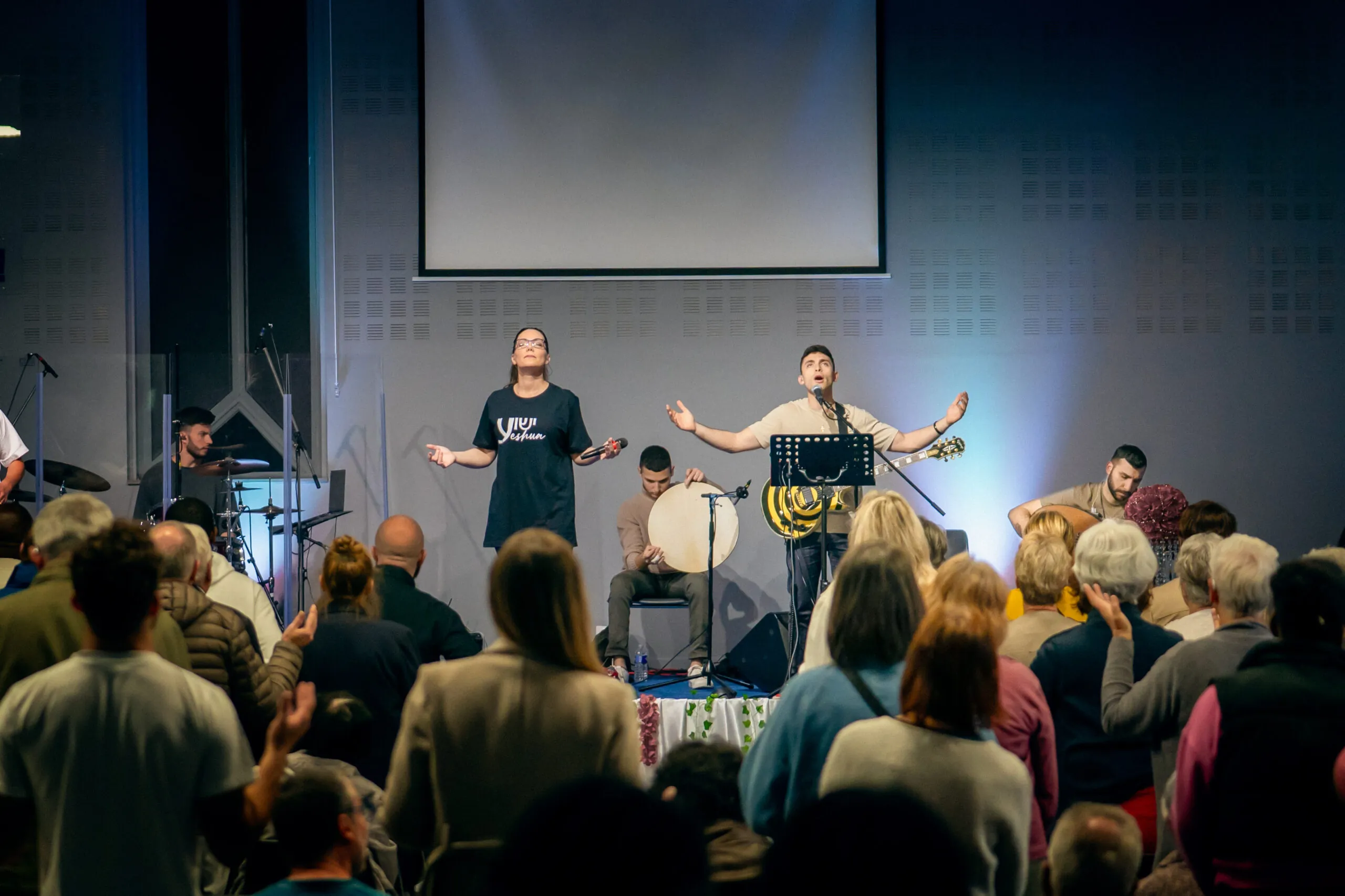
Israel and Ishmael Tour Mission
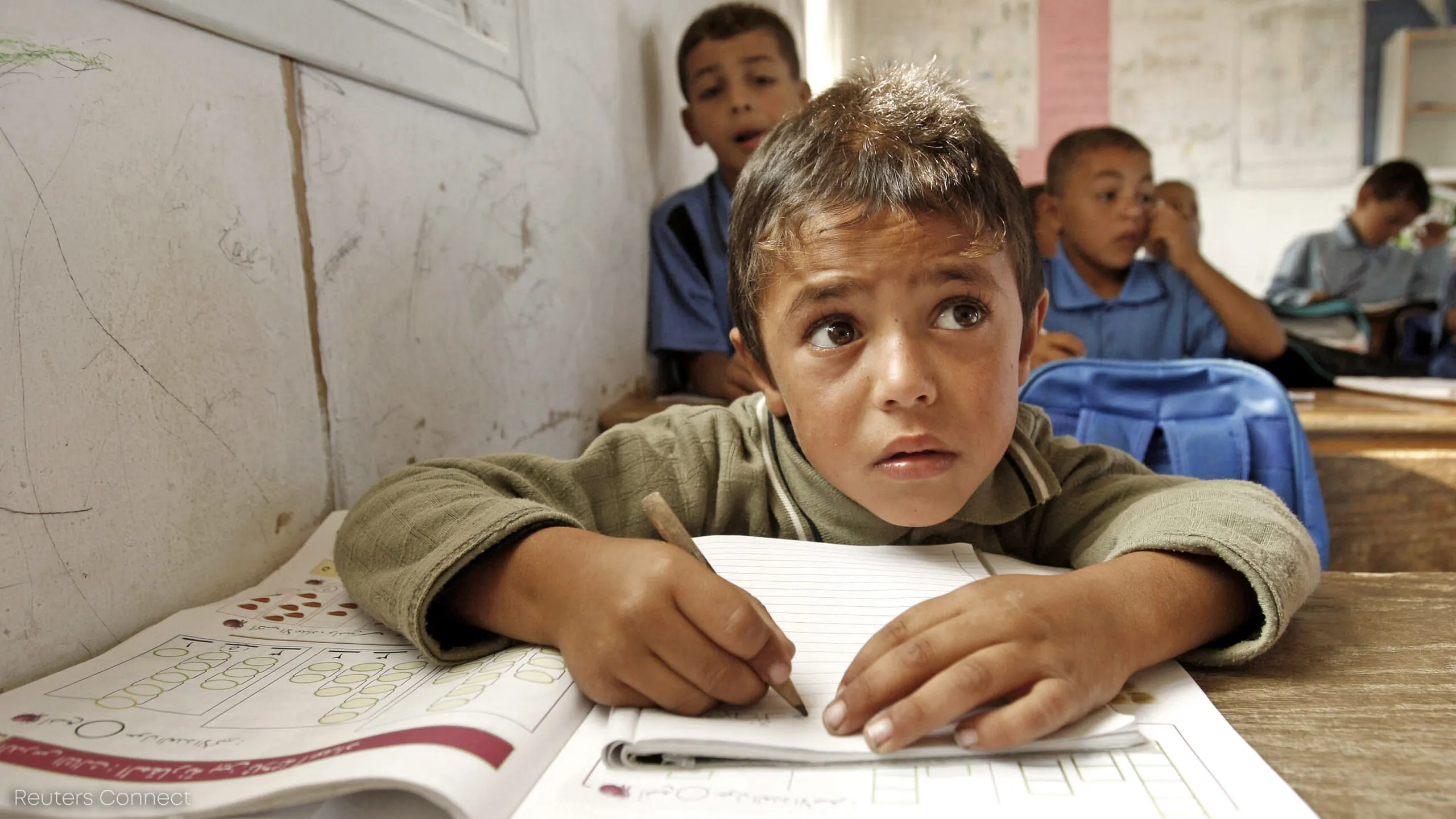
No Child Left Behind
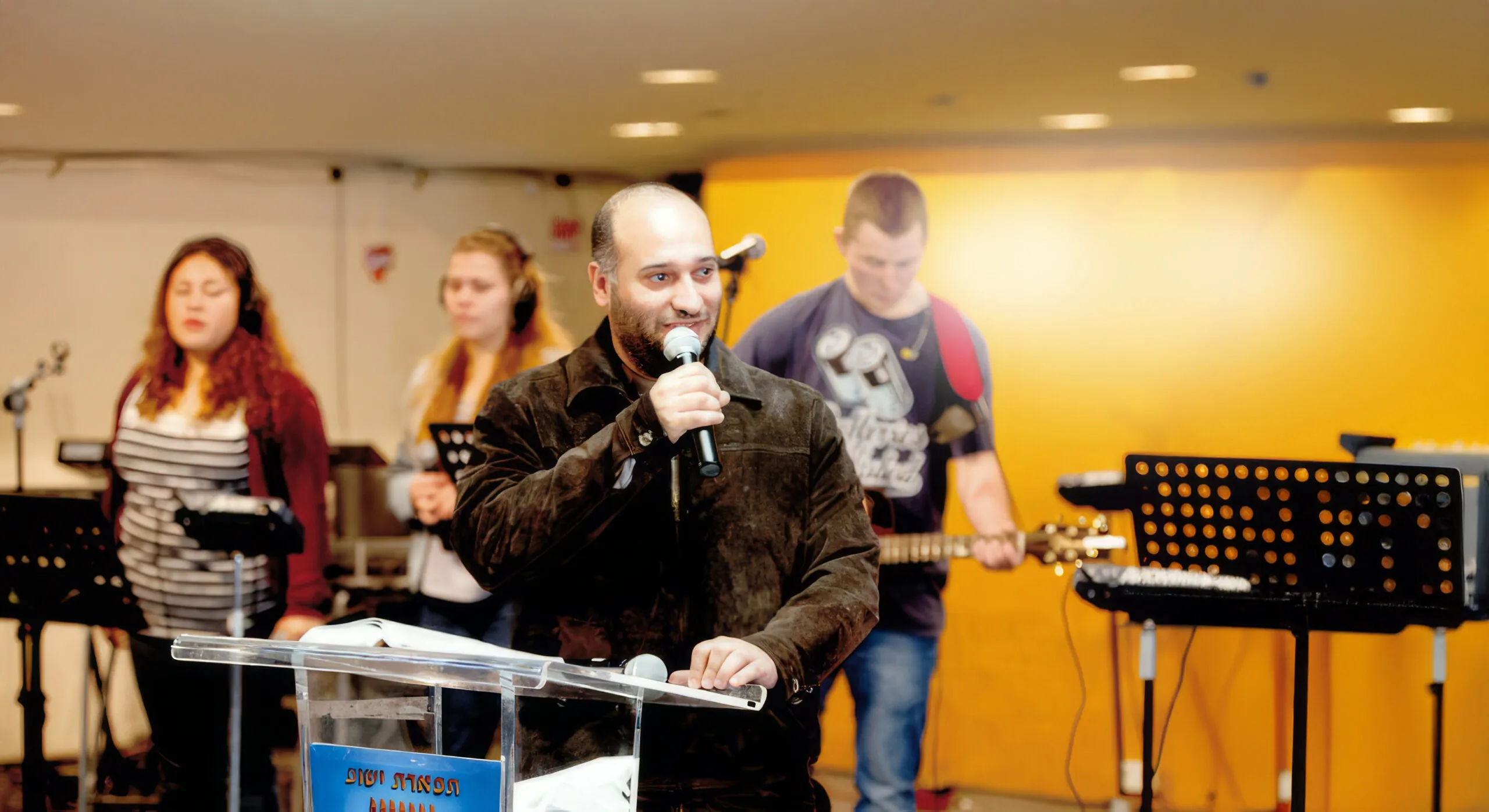
Israel’s First Indigenous Pastor?
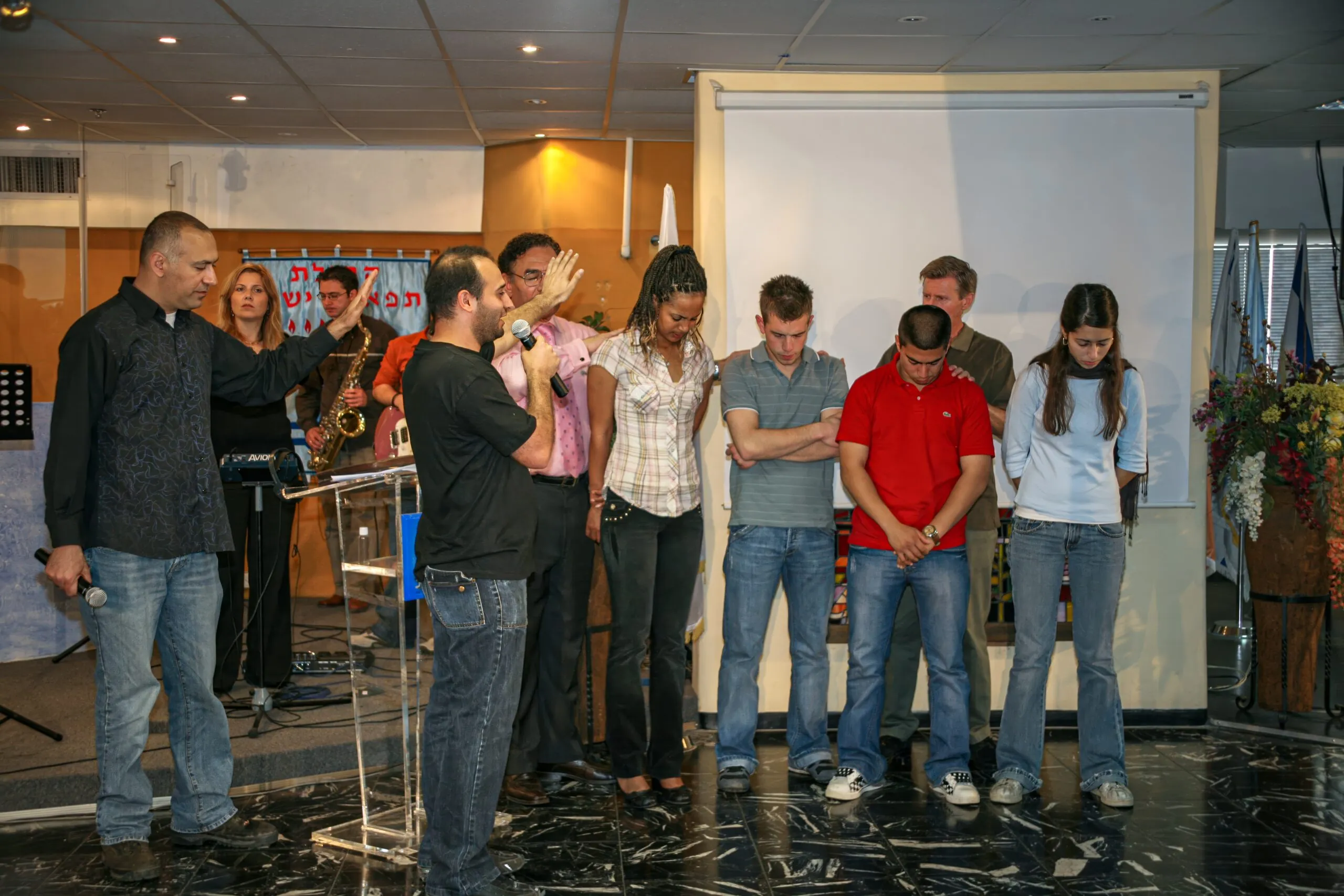
Rooted and Rising in Israel
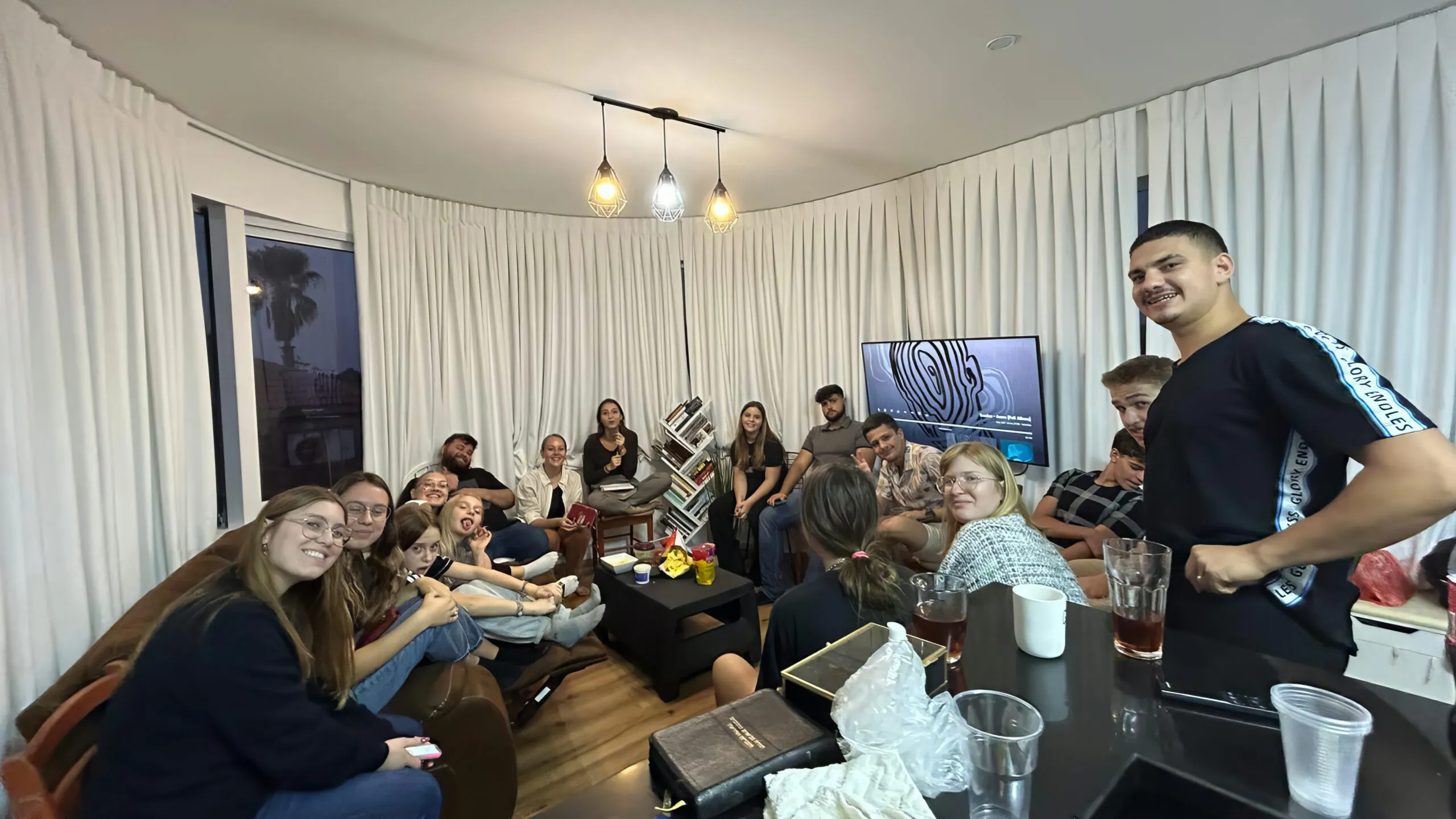
A New Generation Rises
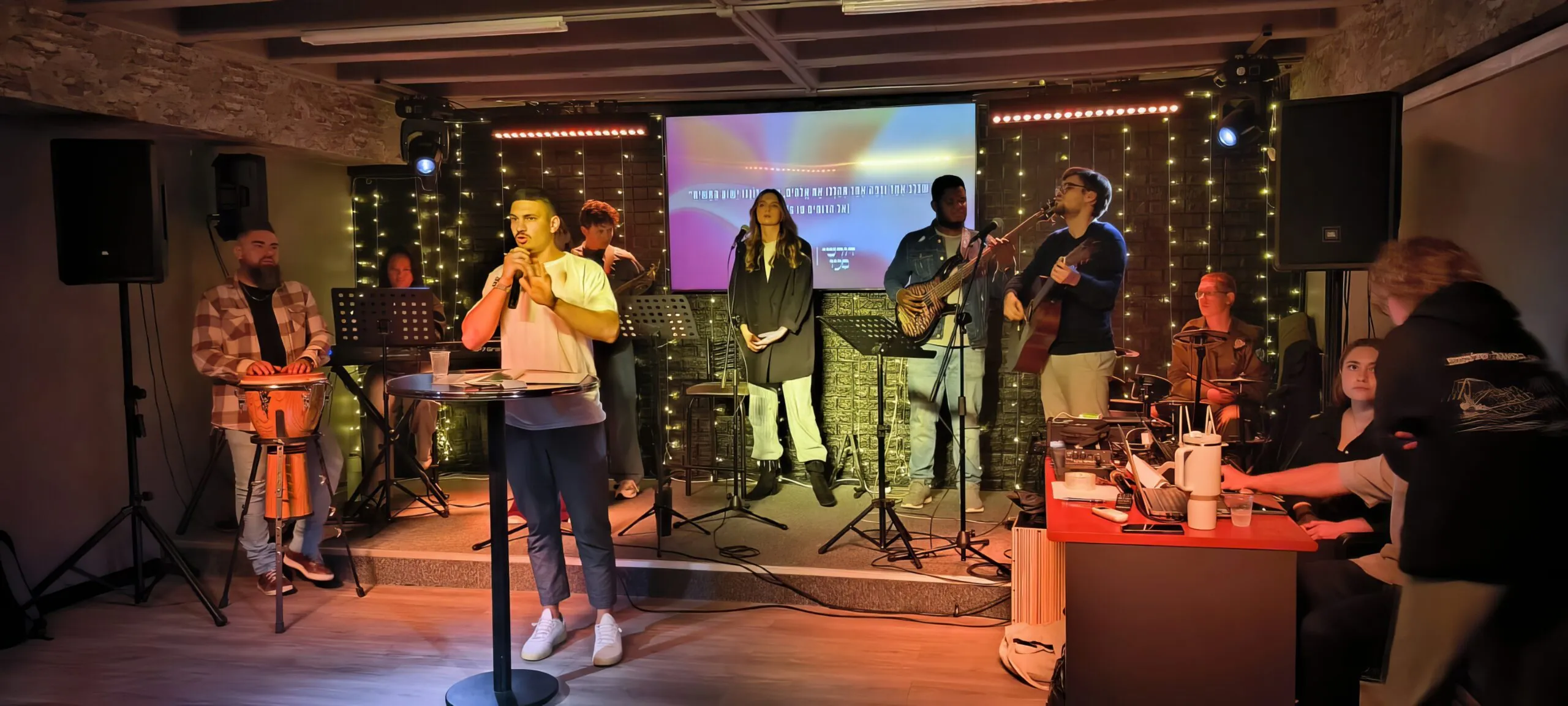
Leaders in the Making
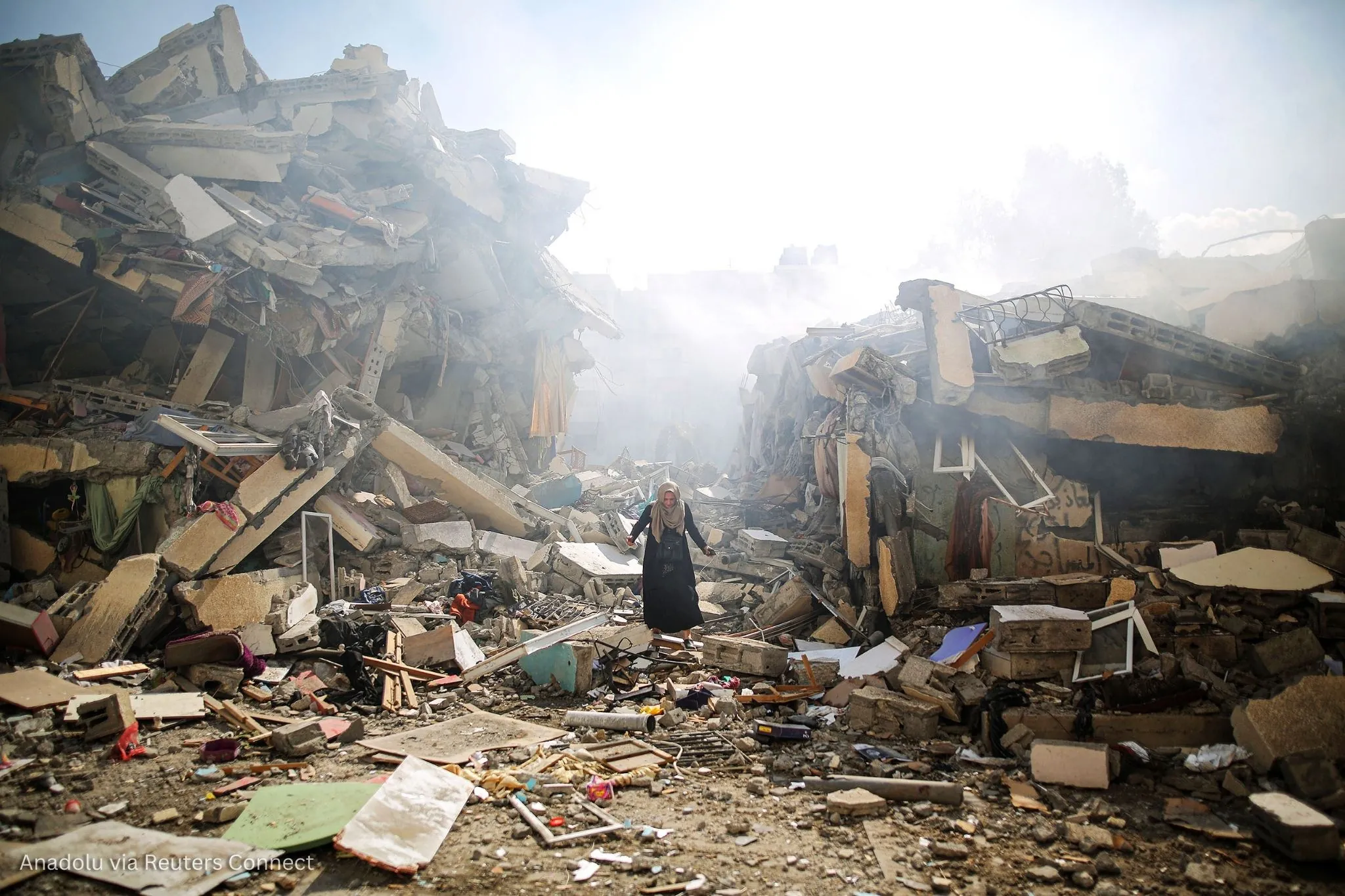
Free Gaza
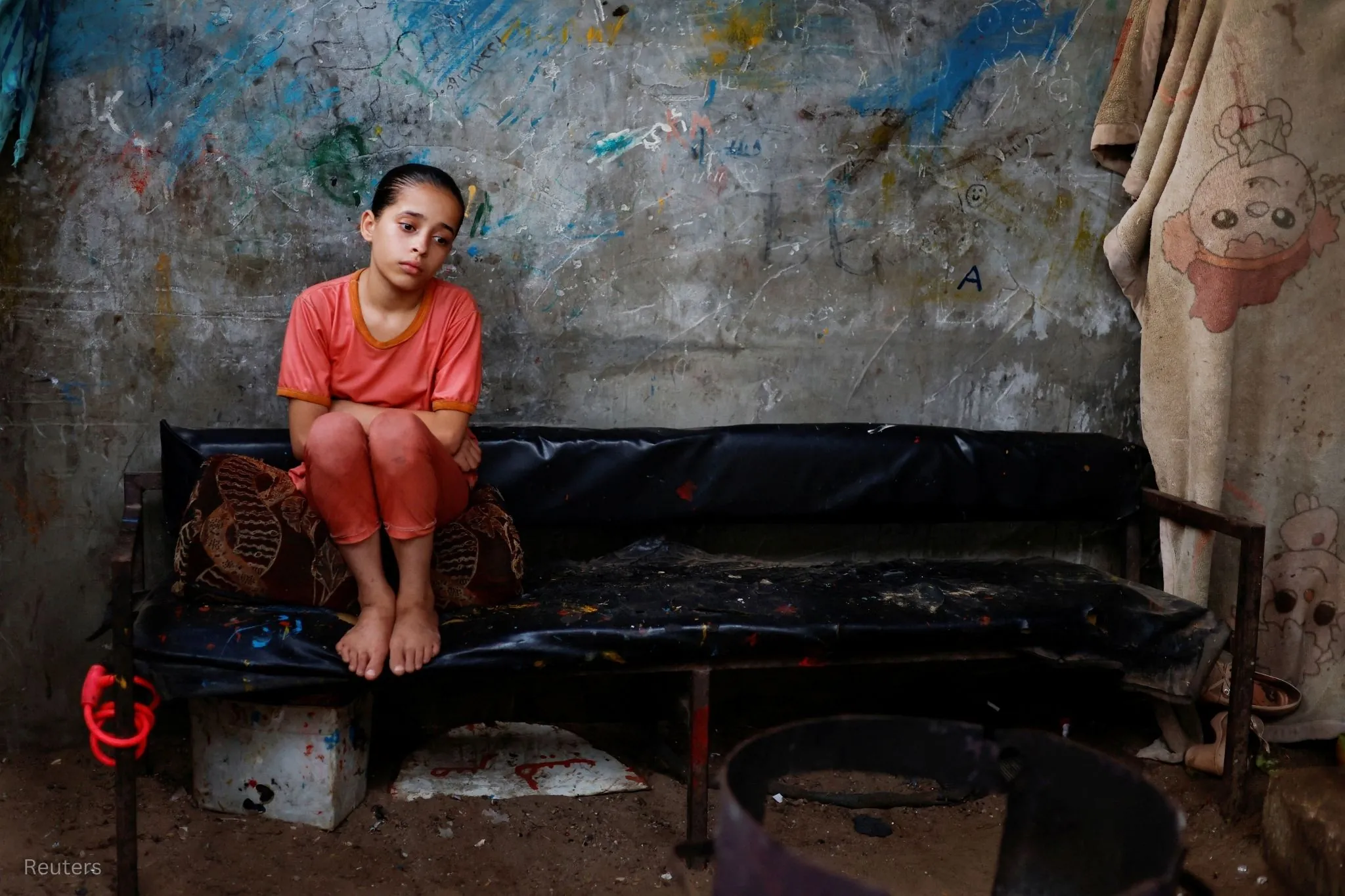
Bringing Light Beyond Borders
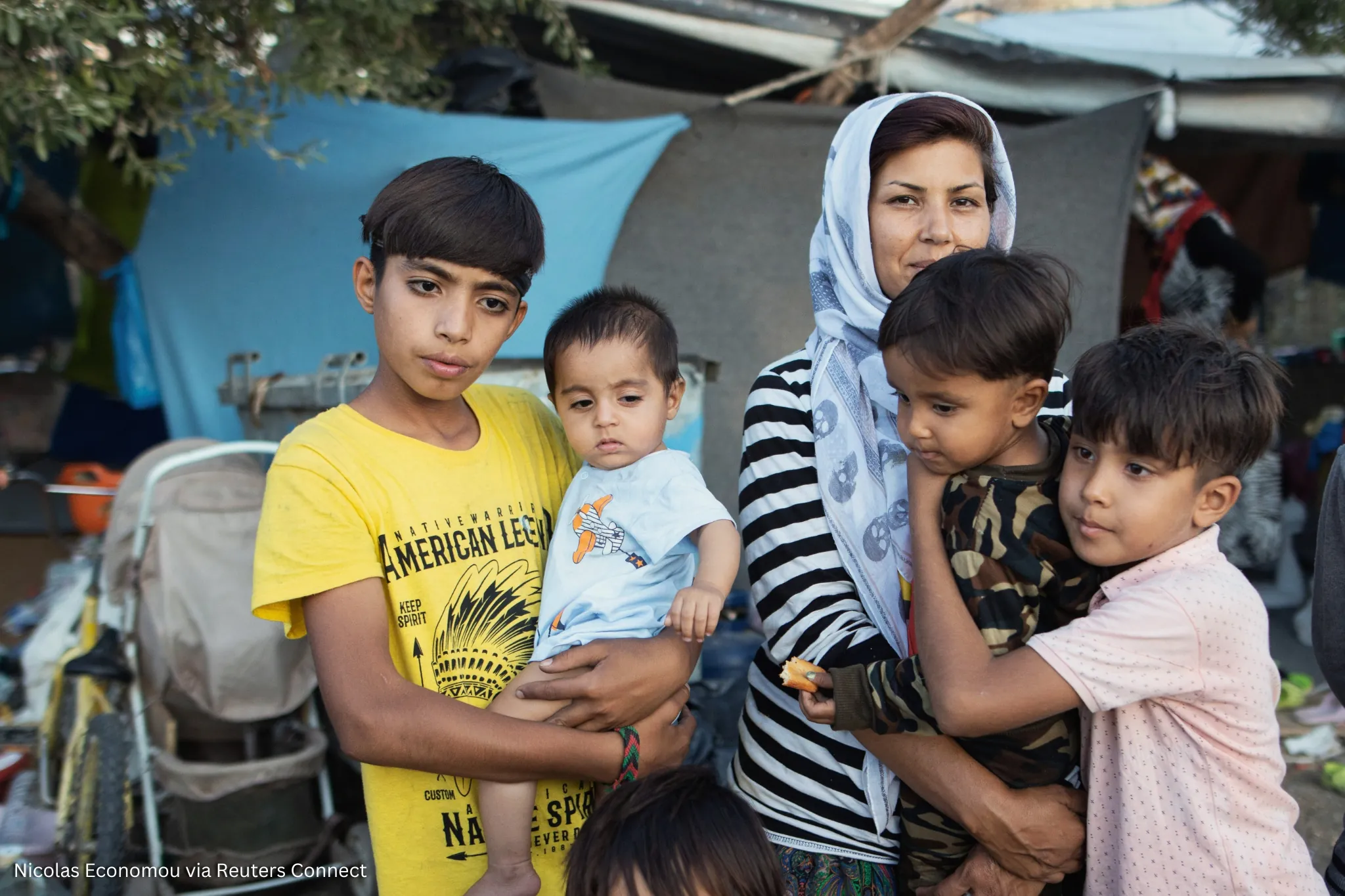
From Crisis to Christ
